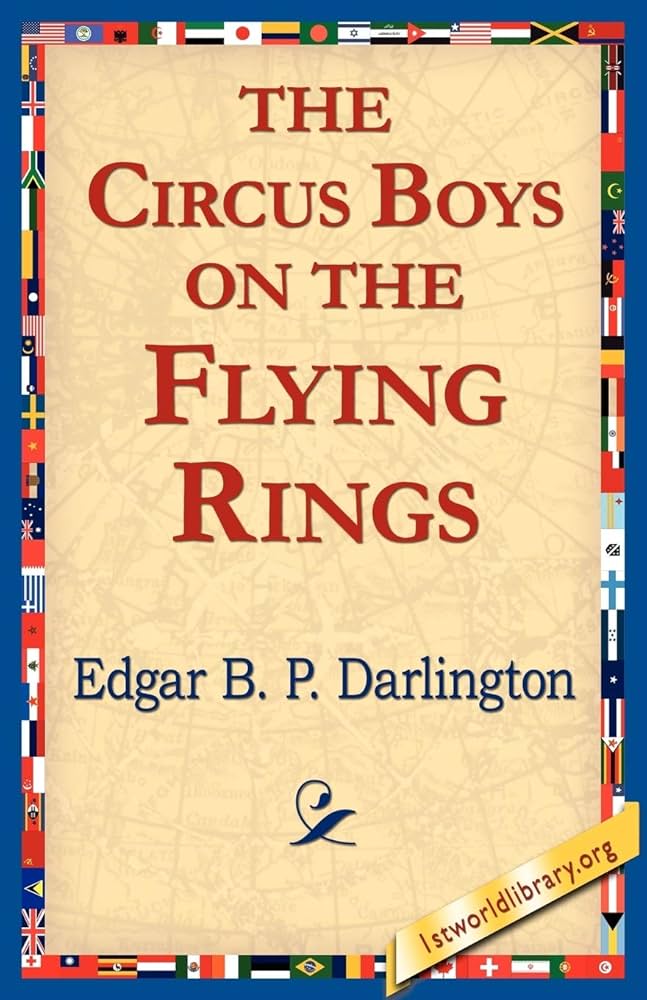Chapter II — The circus boys on the flying Rings
byChapter II begins with the quiet tension of an ordinary afternoon unraveling into a life-altering moment for Phil Forrest. A few minutes late from school, he returns home only to face the grim scowl of his uncle, Abner Adams. Phil’s eyes light up upon seeing a poster for the circus, and he innocently voices his interest in going. This simple wish, however, becomes the tipping point that sets off his uncle’s fury. Abner’s contempt for the circus is palpable, rooted not in logic but in a hardened view of the world. He dismisses Phil’s willingness to earn his own way as foolishness, making it clear that joy and ambition have no place in his house. The harshness of the rejection, layered with bitterness and control, reflects a long-standing bitterness toward anything outside practicality.
Phil tries to respond with respect, standing his ground without aggression. His voice, firm but calm, defends the idea of working to pursue something he loves. But Abner’s response is unforgiving—he lashes out not only at the idea but at Phil’s very character. He condemns further education as a waste of time and demands that Phil find work immediately or leave. The ultimatum is not a test but a command. No room is given for conversation, no effort made to understand. In one breath, Phil’s home becomes a place where he is no longer welcome. The emotional weight is heavy, not because of shouting, but because of the cold finality in Abner’s voice. When Phil is told to pack up and leave, he doesn’t beg or argue. He nods, silently absorbing the blow.
Carefully, Phil gathers the few things that matter. Clothes are folded neatly, as if in defiance of the chaos around him. He picks up a photograph of his mother—a token of love and memory—and places it in his bag with deliberate care. Abner, meanwhile, digs through Phil’s drawers, tearing into them without grace or respect. It’s not just a search for belongings; it’s a symbolic act of erasing Phil’s presence. Yet Phil stands tall, watching silently, hurt but not broken. There’s dignity in his decision to leave peacefully. As he steps out the door, the wind hits him with a different kind of chill. The gate closes behind him, not just on a house, but on a chapter of his life.
Outside, the street feels colder, but the air is also strangely freeing. Though he has nowhere to go, Phil is not lost. He has something more powerful than a roof: he has purpose. Determined not to be defeated by cruelty, he walks away, uncertain of the path ahead but fully committed to carving it himself. This moment marks the beginning of a personal revolution. Phil’s maturity, rarely seen in someone his age, grows more evident with each step. There’s sadness in his departure, yes—but also resolve. He is leaving behind control, not care. He is choosing to live on his own terms, even if the road is rough.
Readers might recognize that this chapter mirrors a turning point in many classic coming-of-age stories. The clash between youth and rigid authority often symbolizes the first real test of character. In Phil’s case, that test is passed not through rebellion, but through grace. He doesn’t yell back. He doesn’t slam doors. He simply chooses himself. For young readers or anyone navigating difficult family dynamics, Phil’s response provides a powerful message: it is possible to honor your values without matching someone else’s cruelty. His strength lies in walking away with integrity intact. That’s a lesson more profound than any punishment Abner could impose.
As Phil’s story progresses, the memory of this confrontation will likely fuel his drive. The rejection doesn’t weaken his spirit—it sharpens it. In literature, a protagonist’s first major loss often becomes the seed of something greater. For Phil, this is the day his independence truly begins. He isn’t just walking into the world—he’s stepping into who he was always meant to become.

